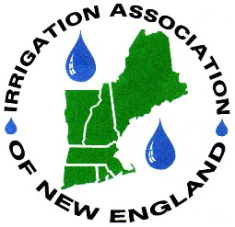Backflow testing
Safeguarding Your Water Quality
Discover the significance of backflow testing and its essential role in maintaining water purity. Picture this: the unexpected reverse flow of water within your pipes. This phenomenon, known as backflow, can jeopardize the integrity of your water supply, as well as your neighbors’. To counter this, specialized backflow devices stand guard, ensuring your water remains untainted.
In compliance with the regulations set forth by the State of Maine, an annual inspection of your backflow prevention device is required. Our team of licensed testers is dedicated to this cause. By conducting thorough examinations, we aim to shield your water supply from potential contaminants like chemicals and other pollutants.
Empowered with state-certified testing equipment, we hold the expertise to assess and validate your backflow devices. Upon completion of the test, our diligent efforts extend further. We take care of all paperwork, ensuring it reaches your city's authorities promptly. For your convenience, upon request, we also furnish you with a personal copy of the documentation.
Partner with us to embrace the assurance of water safety through meticulous backflow testing. Your water's well-being is our priority.
frequently asked question
What is a Backflow Preventer?
Imagine your home's water pipes are like one-way streets. Water flows in one direction, like cars on a road. Now, sometimes the water's flow can get a little confused and start going the wrong way, like cars suddenly driving in reverse on that one-way street.
A backflow preventer is like a traffic cop for your water pipes. It's a special device that makes sure the water only goes in the right direction and doesn't go backward, which could carry dirty or contaminated water back into your clean water supply. So, just like a traffic cop keeps cars in line, a backflow preventer keeps water flowing where it should and stops it from going where it shouldn't.
Why do I need to have my backflow tested every year?
Having a backflow preventer tested is crucial to ensure the safety and cleanliness of your water supply. Here's why:
Imagine your water pipes are like a highway for water to flow into your home. Sometimes, due to changes in pressure, water can try to flow backward in those pipes, carrying with it dirt, chemicals, or even contaminants that could make you sick. This is called "backflow."
A backflow preventer is like a gate that only lets water flow in one direction, preventing any backward flow. However, just like any gate, it needs to be checked regularly to make sure it's working correctly. If it's not functioning properly, your clean water supply could be at risk of contamination.
Getting your backflow preventer tested by a licensed tester ensures that it's doing its job effectively. Proscape uses specialized equipment to make sure the gate is working as it should. By doing this test, you're making sure that the water you use for drinking, cooking, and other daily tasks remains safe and free from any potential pollutants.
In some places, like the State of Maine, there are regulations in place that require annual testing of backflow preventers to protect public health. So, by having this test done regularly, you're not only safeguarding your own water supply but also contributing to the overall well-being of your community.
WHere is my backflow?
Your backflow preventer might be situated in a variety of spots, depending on your setup. Look for it on the side of your house, within your basement, or nestled within a designated pit on your property. At Proscape Irrigation, we're here to guide you – if you're one of our valued customers, simply reach out to us. We maintain a digital record of your property's irrigation details, making it easy for us to provide you with accurate information about your backflow preventer's whereabouts.
What does my backflow look like?
Backflow preventers come in a diverse array of shapes and sizes. For irrigation systems, the permitted variations encompass Reduced Pressure Zone (RPZ) and Pressure Vacuum Breakers (PVB). We've compiled images of the most prevalent types for your reference:
Febco 825Y - Reduced Pressure Zone Backflow Preventer
Febco 765 Pressure Vacuum Breaker Backflow Preventer
Watch Ben do a Backflow test on a Reduced Pressure Zone (RPZ) Backflow Preventer
Backflow Preventer Resources
To delve deeper into Backflow Prevention and relevant regulations, kindly explore the provided links below:











